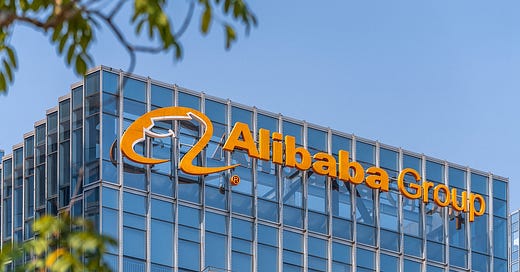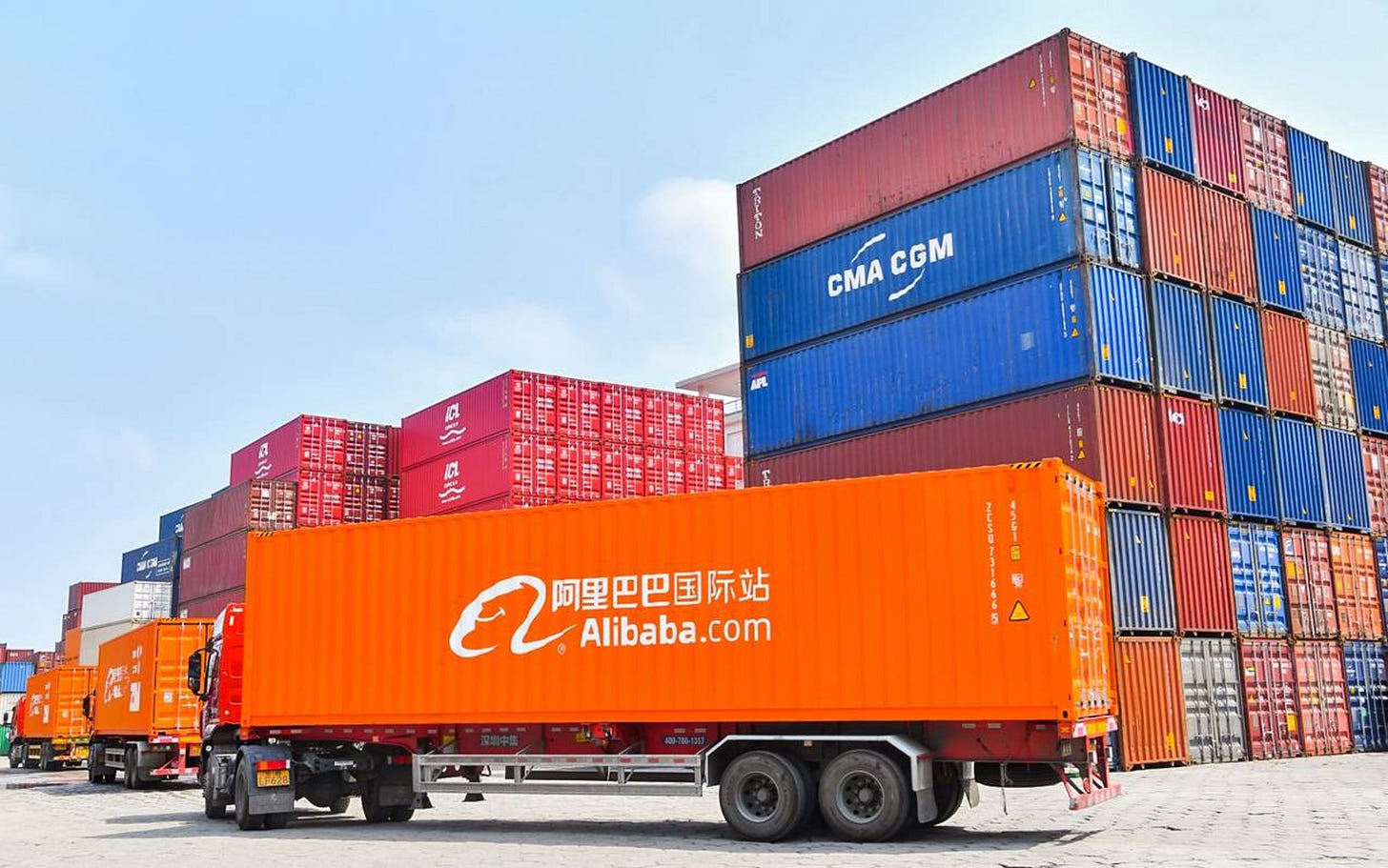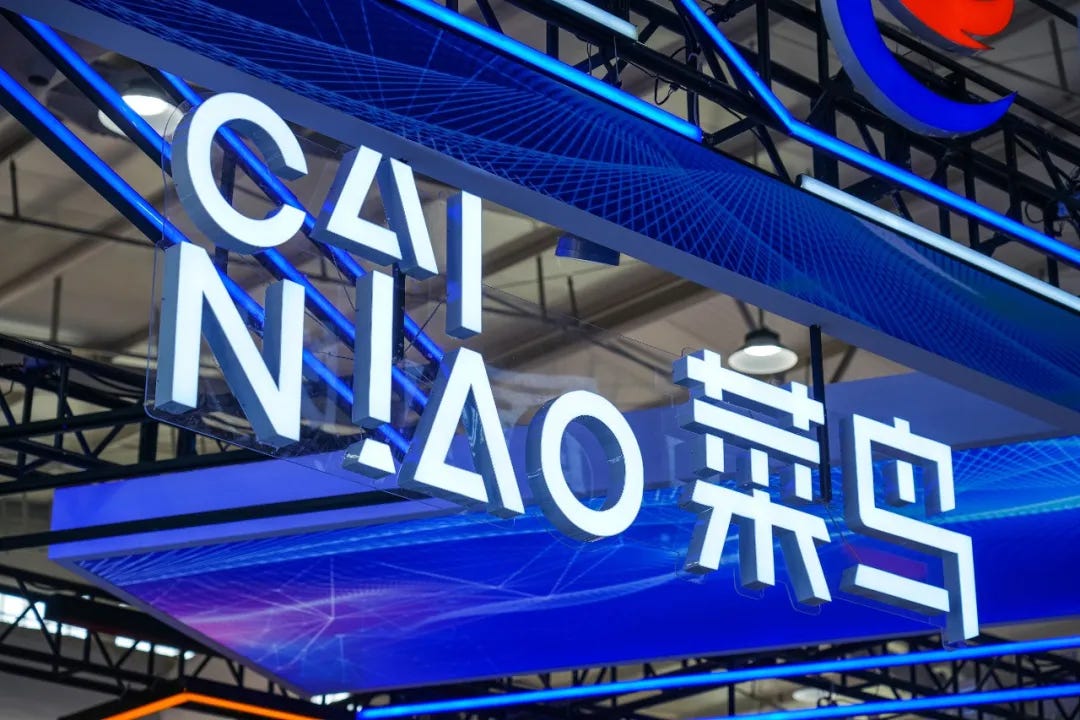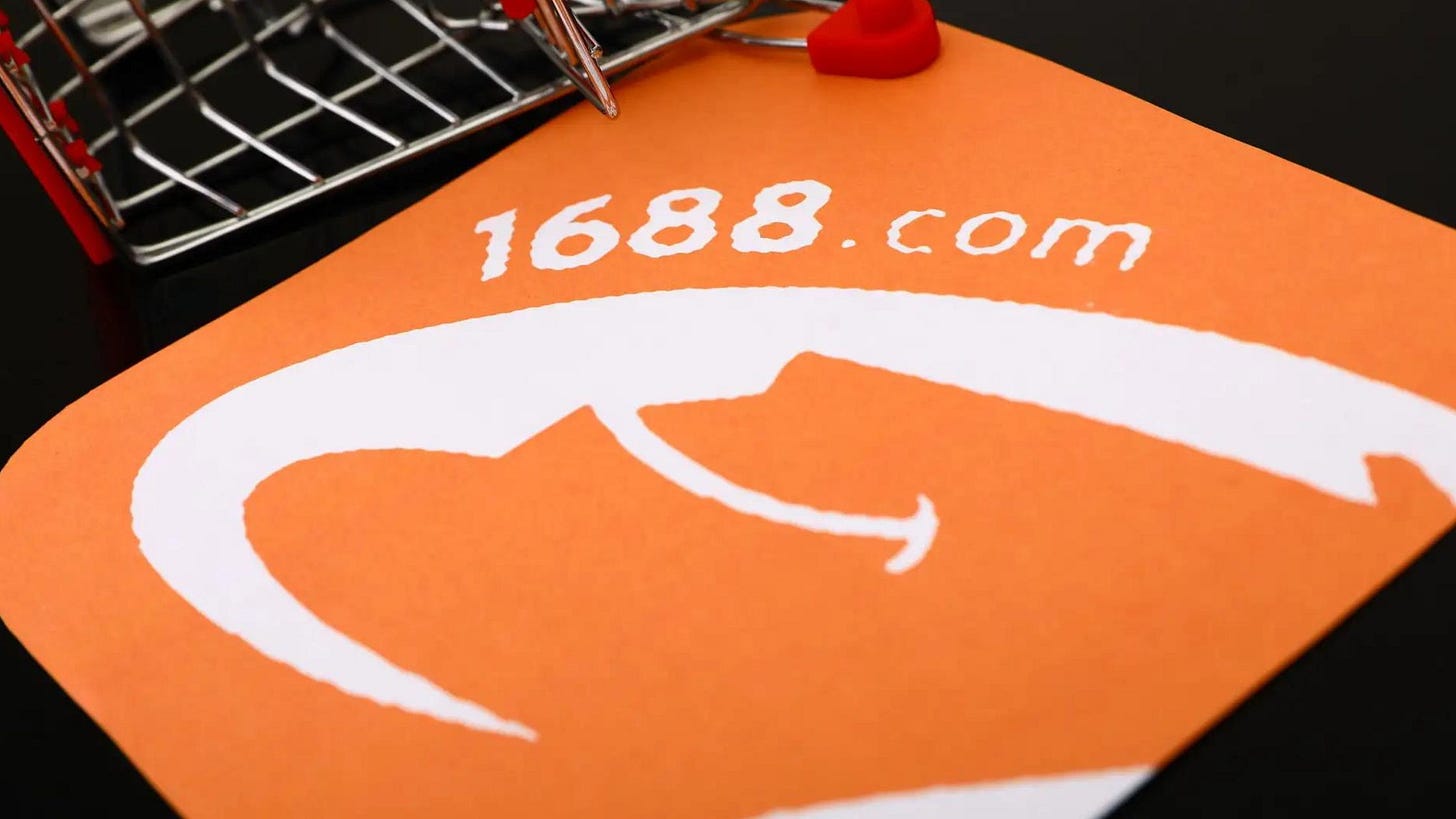Breaking Down Alibaba's Global Expansion amidst Domestic Headwinds
Alibaba is Struggling to Turn Around with Focus back to its Core
Here we dive into Alibaba Group's latest moves in global market and the highlights are:
This year, the scrapped IPO plans of Cloud and logistics Cainiao, as well as the delayed IPO of the grocery business Freshippo, indicates the failure of Alibaba Group's management shake-up.
Despite the Group's lower-than-expected financial results after reshuffle, Alibaba's International Digital Commerce segment performed strongly with 44% surge to 4.02B USD in 2023 Q4 revenue.
In November 2023, Alibaba's B2B site 1688.com, a domestic business unit, announced to join Alibaba's cross-border B2B party. Up to now, 1688.com has launched its sites in Vietnam and Japan.
Since the launch of Five-Day Global Delivery in last September, Cainiao's related orders have achieved a triple-digit growth in Q3 with an average fulfillment rate over 90% in four European countries.
Alibaba Group cancelled Cainiao's IPO recently with the aim to reach deeper strategic synergies between its e-commerce businesses and logistics service.
Alibaba Group's plan to split is being replaced by greater focus on its core businesses, e-commerce and cloud.
Background
The year 2023 witnessed Alibaba Group's biggest corporate restructuring since its establishment more than two decades ago. Facing growing pressure from rivals like PDD, the owner of Temu, Alibaba Group reorganized its businesses into six independent entities, each led by its own CEO, with a new governance model of "1+6+N", in which each business unit will face the test of market forces individually with the potential to seek its own IPO.
However, just one year after the reshuffle, Alibaba's plan to spin off its cloud unit was cancelled, with the company pointing to difficulties caused by elevated U.S. export controls on chips to China. An initial public offering of its logistics unit Cainiao and its grocery business Freshippo is also being held back for better timing.
"We concluded that to maintain our competitive edge, we must increase our investment in core capabilities and adopt a more aggressive approach toward competition in order to win growth." said Eddie Wu, Alibaba Group's CEO, on the earnings call earlier this year. In this way, Alibaba has all but abandoned spinoffs in favor of combining operations to drive its core businesses of e-commerce and cloud.
Alibaba is navigating a challenging period, with its once-dominant business in the Chinese e-commerce landscape slipping from a high of 70% market share to less than 50%. The company's halted restructuring efforts are seen as a strategic move to regain lost ground and refocus on its core e-commerce business, including its critical international division. Also noteworthy is that Alibaba's foundations were built upon its global expansion, with Alibaba.com serving as the company's inaugural business.
And maybe there's a silver lining. Alibaba's International Digital Commerce (hereinafter referred to as "AIDC"), Alibaba's overseas e-commerce marketplaces, performed strongly, with AliExpress orders rising 60% YoY, according to the financial results announced by Alibaba Group for the quarter ended December 31, 2023. "There is huge potential for AIDC to increase penetration in many markets," said AIDC's CEO Jiang Fan on a call with analysts following earnings.
Overview
Here we will make a deep dive into Alibaba's international business, which includes AIDC, Cainiao Network, the logistic arm behind AIDC, as well as the Group's B2B site 1688.com, a domestic business unit which announced to join Alibaba's cross-border B2B party at the end of last year.
Currently, AIDC can be roughly divided into two segments: one is the wholesale business, conducted by Alibaba.com; the other is the retail business, led by Lazada, AliExpress, Trendyol, Daraz, and Miravia.
In Q4 2023, AIDC's revenue jumped by a significant 44% to 4.02 billion USD, where retail commerce revenue surged 56% to 3.28 billion USD and wholesale climbed 8% to 740 million USD.
Alibaba.com
Launched in 1999, Alibaba.com marks the Alibaba Group's inception in the business realm and international business is where the group started from. In fiscal year 2023, buyers who sourced business opportunities or completed transactions on Alibaba.com were located across over 190 countries, with over 220,000 paid supplier members worldwide. Additionally, the platform witnessed a 110% growth in GMV and a 47% increase in orders in 2023, with a compound annual growth rate (CAGR) of over 100% in paying buyers over the past three years.
At the end of 2023, Alibaba.com completed the acquisition of Visable, the European B2B digital trade platform. Thanks to this deal, Alibaba is further expanding its supplier base in the region and further advancing Alibaba.com's global expansion and dual brand strategy, said AIDC CEO Jiang Fan.
To address the concerns and streamline global sourcing, Alibaba.com launched Alibaba Guaranteed in March 2024, an innovative service where purchasers can benefit from set per-unit prices, reduced minimum order quantities, and assured delivery dates when buying products.
As for now, Alibaba Guaranteed orders are eligible for shipping to addresses within the United States, Canada, Mexico, the United Kingdom, France, and Germany. Products under this category are required to be shipped within 72 hours to 7 days, ensuring timely delivery.
AliExpress
Launched in 2010, AliExpress is a global marketplace targeting consumers around the world and enabling them to buy directly from manufacturers and distributors in China and around the world. In addition to the global English-language version, AliExpress is also available in 17 other languages, including Portuguese, Spanish and French. Top consumer markets where AliExpress is popular are the United States, Brazil, France and Spain.
AliExpress is the key contributor to AIDC's growth, recording YoY growth of 60%, mainly driven by Choice launched in early 2023. Currently, AliExpress's Choice has been launched in 55 countries and regions worldwide and continues to upgrade consumer experience with price competitiveness and improved service standards, through supply chain optimization and parcel consolidation in key strategic countries. As of January 2024, Choice deals already occupied half of AliExpress's total orders.
AliExpress has performed strongly since the launch of Choice. SimilarWeb data indicates AliExpress's monthly average visits in the U.S. soared to 24.2 million in 2023, a 290% YoY increase, marking it as one of the nation's fastest-growing e-commerce sites. According to app analytics firm Wiseapp·Retail·Goods, AliExpress's monthly active users (MAU) in South Korea more than doubled to 8.2 million in February from 3.6 million a year earlier, making it the second-largest e-commerce platform by MAU. In Spain, AliExpress was the second most-visited e-commerce platform in December 2023, as per Club Ecommerce and EGI Group statistics.
Besides Choice, in early 2023, AliExpress also rolled out the half-managed and overseas consignment services, which are hailed as innovative models in cross-border e-commerce, facilitating loads of Chinese factories and old-school exporters to jump on the e-commerce bandwagon.
This year, AliExpress remains active in exploring new markets. In March, AliExpress unveiled its plan to invest 1.1 billion in South Korea over the next three years and recently announced Tang Wei as new brand ambassador. In the Middle East, AliExpress has announced Saudi soccer stars Salem Al-Dawsari and Feras Al Brikan as its regional brand ambassadors in early March. And in the UK, the company has debuted its livestreaming shopping service on March through a partnership with Vogue Business. Also a livestreaming competition will be held in which winners will have the chance to develop their own fashion collections. Not long ago, AliExpress secured a deal to become an official partner of UEFA Euro 2024, doubling down on its bet in the European market that echoed rival Temu's multimillion-dollar investments in the Super Bowl for two consecutive years.
Miravia
Miravia, launched in 2022 by Alibaba Group in Spain, also signifies the company's strategic foray into the European market. It serves as a multifaceted platform, blending a marketplace with entertainment elements, catering to both mid-range and high-end products. Miravia adopts an influencer marketing-focused approach, akin to Shein's strategy, allowing influencers to create content within the platform to showcase products in real-life scenarios, enhancing the customer's purchasing experience.
In March of last year, Data.ai released the ranking of e-commerce app downloads in Spain. The top three were dominated by Chinese companies, with Miravia and AliExpress ranked in 1st and 3rd place, and fast fashion Shein in 2nd place. Now Miravia boasts more than 12,000 brands and retailers home and abroad and will be one of the main sponsors of the next Olympic Games in Paris 2024.
Cainiao Network
Founded in 2013 by Alibaba Group, Cainiao now is the world's largest cross-border e-commerce logistics company, with solutions covering express delivery and global supply chain services for both Alibaba and third-party customers. In fiscal year 2023, Cainiao processed over 4 million cross-border parcels daily with its international logistics revenue hit 5.08 billion USD, accounting for 47.4% of the total. In Q4 2023, Cainiao's revenue grew 24% YoY to 4,011 million USD, primarily driven by cross-border fulfillment solutions.
To support cross-border business development, with the upgrade of end-to-end capabilities, Cainiao and AliExpress jointly launched the Five-Day Global Delivery Service in last September for consumers in its main markets, including Spain, Netherlands, UK, South Korea and Belgium. In March this year, the service has been expanded to Germany, France, Portugal, Saudi Arabia, Mexico, and the US.
Customers who place an order in those regions on AliExpress can now expect to receive their parcels in five days, delivered by Cainiao. Since the launch of Five-Day Global Delivery, related orders have achieved a triple-digit growth in the third quarter with an average fulfillment rate over 90% in four European countries.
1688.com
Launched in 1999, 1688.com is China's largest integrated domestic wholesale marketplace in 2021 by net revenue, according to Analysys. As the biggest Chinese B2B platform for dropshipping and wholesale, 1688.com is the main source for Taobao, Pinduoduo, Amazon, Shopify, Wish, eBay and other platforms overseas. Since it's mainly for B2B purpose, the price on the site is competitive to gain dropshippers and wholesalers.
Back in mid-November 2023, 1688.com was upgraded as the priority of Taobao Tmall Commerce Group, Alibaba Group's main business unit. 1688's foray into overseas markets primarily revolves around providing sourcing solutions for cross-border sellers, particularly those engaged in content-driven operations on platforms like TikTok.
To be specific, 1688.com rolled out three cross-border sourcing solutions: the Xunyuantong API, overseas direct procurement, and source exchange. Through a cross-border API interface, products information on 1688.com can be imported into various overseas procurement websites for dealers to place orders directly.
At the end of October 2023, 1688.com and Vietnam's VelaCorp Group jointly launched B2B site named SaboMall, where product procurement and technical support are provided by 1688.com to satisfy more than 10 million stores' needs for cross-border products from China to Vietnam.
In Japan, 1688 has teamed up with Rakumart, an innovative B2B digital trade platform catering to the needs of small and medium-sized overseas buyers. Headquartered in Hangzhou, Zhejiang Province, the birthplace of Alibaba, Rakumart has now expanded its presence with dedicated sites in Japan, Brazil, and South Korea. Buyers can seamlessly make purchases on the website, leveraging Rakumart's collaborative logistics for efficient shipping.
Insiders revealed that there's no head-to-head competition between 1688.com and Alibaba.com at the moment. While AIDC's Alibaba.com garners a significant portion of its revenue from cross-border transactions and logistics, 1688.com primarily focuses on supplying goods for cross-border trade, with no immediate plans to venture into direct online transactions with overseas buyers. Senior executives at 1688.com view the overlap and competition among Alibaba's sectors in global ventures as beneficial, advocating for an open market without protective barriers for specific sectors.
Review
AIDC is hailed as Alibaba's most promising segment, with its head Jiang Fan earning praise within the industry. Currently, AIDC is actively expanding its team, not just domestically but also overseas, targeting key markets like France, the United States, Spain, and South Korea. AIDC also remains a popular choice for internal transfers within Alibaba Group, partly because of its impressive growth trajectory and a youthful and dynamic work environment cultivated by Jiang Fan.
In the three quarters following Alibaba's restructuring, AIDC has led the charge with revenue growth rates of 41%, 53%, and 44% respectively, gradually increasing its revenue share within the group to 9.45%, 10.9%, and 10.95%.
HSBC predicts that AIDC has gradually matured, with a large user base across the EU (including the key Turkey market), ASEAN, South Korea, and Latin America. By 2027, AIDC's GMV is expected to reach 118 billion USD, doubling from 53 billion USD in 2022.
When assessing the future of Alibaba's international business, particularly in its rivalry with Temu, we foresee significant headwinds on the horizon.
First, while Jiang Fan may be on par with the likes of PDD's founder Huang Zheng and Temu’s head Gu Linglin, there are still execution gaps and more significant internal challenges at Alibaba Group.
For example, AliExpress had once achieved significant breakthroughs abroad, but internal strifes caused a major setback that it struggled to overcome.
Second, Chinese businesses are facing an escalating challenge due to geopolitical uncertainties, exemplified by the recent ban of TikTok in the U.S.











